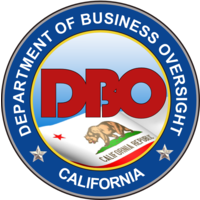23 Mar Latest News From the Commissioner of Business Oversight
 On March 4, 2020, Governor Gavin Newsom proclaimed a state of emergency as a result of the COVID-19 outbreak. On March 16, 2020, the Governor issued Executive Order N-28-20, directing the Department of Business Oversight (Department) to work with financial institutions to identify tools to be used to afford Californians relief from the threat of residential foreclosure and displacement, and to otherwise promote housing security and stability during this state of emergency. The executive order also requested financial institutions to implement an immediate moratorium on foreclosures arising from causes related to COVID-19.
On March 4, 2020, Governor Gavin Newsom proclaimed a state of emergency as a result of the COVID-19 outbreak. On March 16, 2020, the Governor issued Executive Order N-28-20, directing the Department of Business Oversight (Department) to work with financial institutions to identify tools to be used to afford Californians relief from the threat of residential foreclosure and displacement, and to otherwise promote housing security and stability during this state of emergency. The executive order also requested financial institutions to implement an immediate moratorium on foreclosures arising from causes related to COVID-19.
In furtherance of the executive order, the Commissioner of Business Oversight issues this guidance to escrow agents, finance lenders and servicers, student loan servicers licensed under the Student Loan Servicing Act, and residential mortgage lenders and servicers under the California Financing Law (CFL) and California Residential Mortgage Lending Act (CRMLA).
The Department will not take enforcement action against licensees for operating unlicensed branches to the extent that, during the state of emergency, employees conduct activities from home that normally would require a branch license, provided that appropriate measures are taken to protect consumers and their data.
The Department will not criticize student loan servicers or licensees sponsoring mortgage loan originators who permit their respective employees to work from home, provided that:
- The employee does not keep any physical business records at home or anywhere other than the licensed location;
- The employee does not meet with any customers at home;
- The licensee has a procedure in place to supervise employees as required by law;
- The employee uses only computers and devices that are encrypted and accesses the licensee’s network using a virtual private network that is encrypted; and,
- The licensee and employee take all other necessary measures to protect consumer data privacy.
The above also applies to Escrow Law licensees; however, they should be aware that the Department cannot modify any restrictions that may be imposed by the Fidelity Corporation or the licensee’s surety bond. The Commissioner recommends that licensees:
- Offer payment accommodations, such as allowing borrowers to defer or skip some payments or extend the payment due date, which would avoid delinquencies and negative credit bureau reporting caused by COVID-19-related disruptions. Mortgage lenders may also ease terms for new loans to affected borrowers, consistent with prudent banking practices, and consult Federal Housing Administration guidance on loss mitigation options. Prudent efforts to modify the terms on existing loans for affected customers will not be subject to examiner criticism by the Department.
- Exercise discretion in determining which of their services and transactions are “essential services” for the purposes of “stay-in-place” or “shelter-in-place” orders.
- Report to the Department any disruption of services provided to consumers.
Escrow Law, CFL, and CRMLA licensees should continue to comply with the fair lending and borrowing provisions of the California Homeowner Bill of Rights (HBOR). The HBOR is designed to guarantee basic fairness and transparency for homeowners in the foreclosure process. Key HBOR provisions can be found on the California Department of Justice’s website.
The Department will not criticize any late mortgage recordation arising from the closure of a county recorder’s office related to COVID-19. This guidance does not amend any of the Department’s statutes or regulations.
Of course, if you have any questions or currently need escrow support, please reach out. Our team is here to help!
